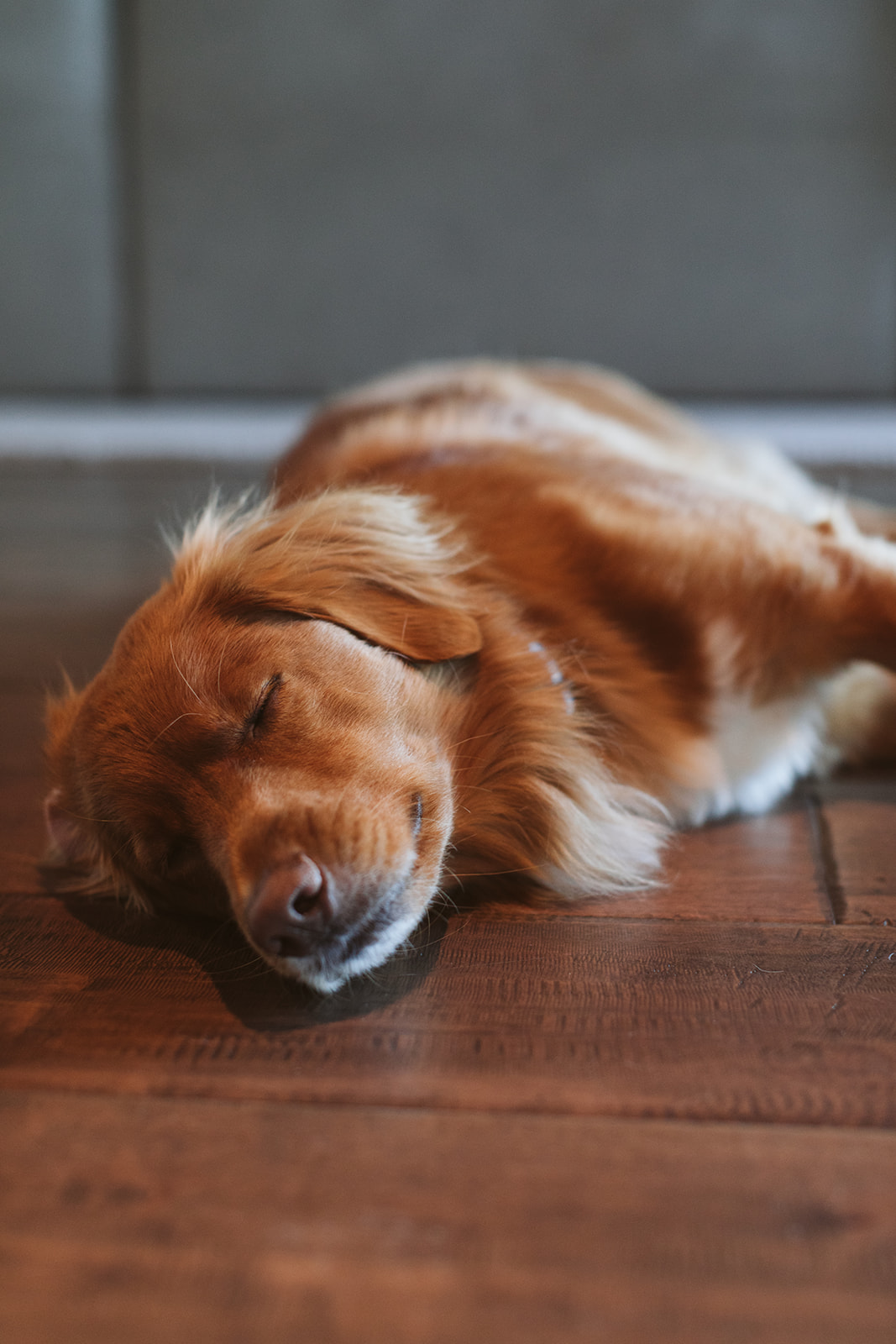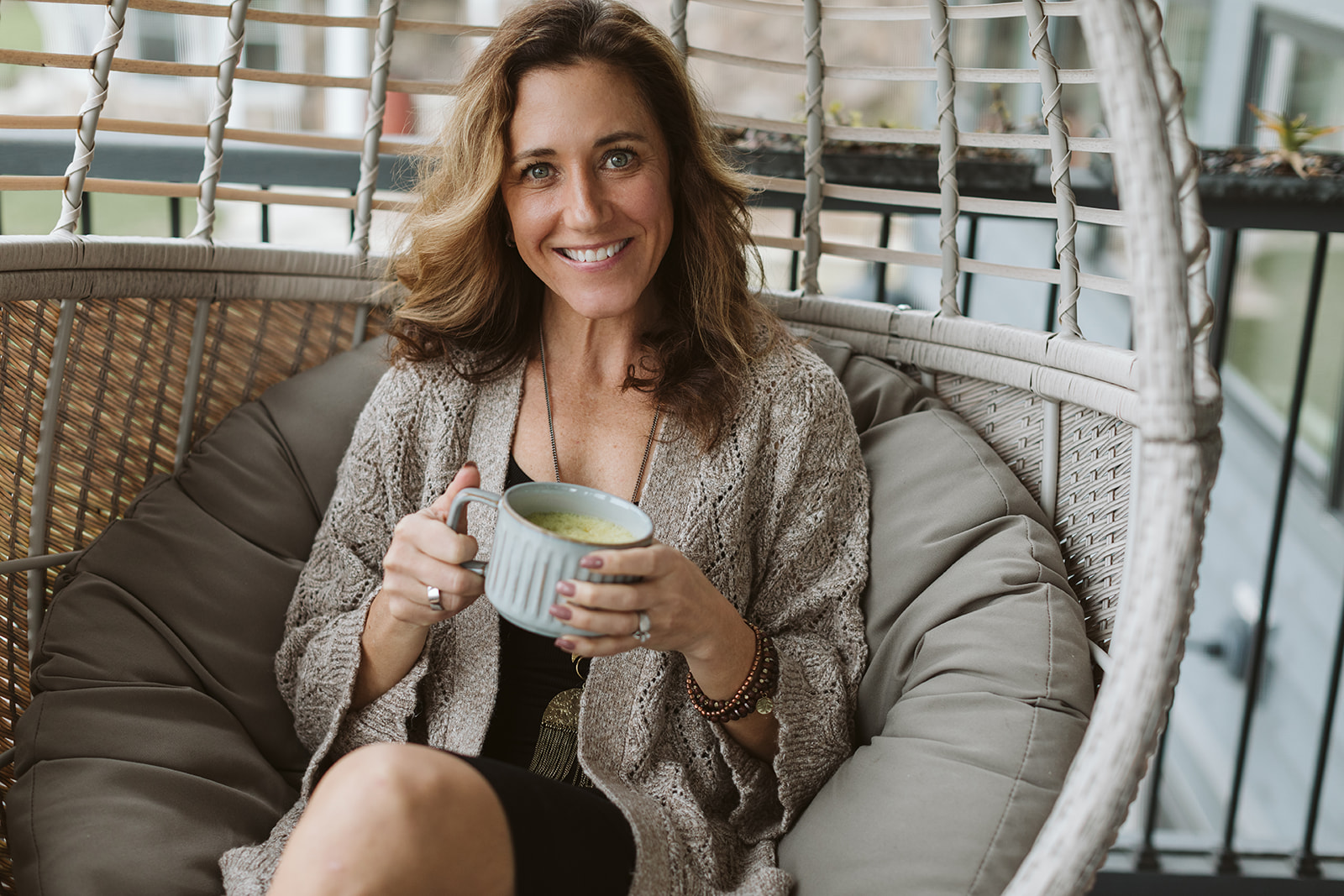Sleep, that magical time machine that takes us to breakfast, is still pretty much a mystery to most of us. For many, it comes effortlessly, just hop into bed, even after late-night snacking and an afternoon espresso, shut your eyes and wake up to the alarm. For years, I was jealous of my husband who could do just that, while I would lay next to him counting my breath or sheep to try to make sleep come, to no avail.

I began showing signs of insomnia as a kid. I was the one always sneaking around at night until my parents would catch me, and bring me back to bed. Most nights I couldn’t fall asleep until my mom would lay next to me and I could feel her hair. This pattern of sleepless nights continued into my early forties. My insomnia would come in waves, and some months were horrible, only sleeping a few hours a night. This was exacerbated by my autoimmune condition in my thirties and early forties, Sjogrens Syndrome caused peripheral neuropathy in my hands and feet. The burning sensation was always worse at night. Many nights I would have to get up and soak my feet in an icy tub just to get some relief.
As anyone who has experienced extended insomnia, it can control your life. Your days can be filled with fatigue, brain fog, anxiety, hunger and a short temper. Not a perfect combo when you are a working mom of three. I tried the natural sleep aids including melatonin, GABA, 5 HTP, Kava Kava, Passion Flower and Valerian Root, but nothing worked. I went to the doctor and she suggested Trazadone, however it never resonated with me as a person interested in natural health remedies. I took it once, it made me feel weird, and never took it again.
About this time I had gone back to school to become a Holistic Nutritionist at the Institute of Holistic Nutrition in Toronto Canada. I began to see one of my teachers who I highly respected. We met a few times and talked about my autoimmune symptoms as well as my sleep issues. Everyone is unique and sleep issues stem from many places, so she did some muscle testing and we talked about where I felt my struggle was coming from.
Together we put together a plan and these are the top 10 things that changed my life, and yes, sleeping well does change your life.
- Supplemental HGH: This is the one that typically throws people a bit when I tell them because of its association with doping in sports. No, I was definitely not trying to “Get Swole”. HGH is a substance that is naturally produced by the pituitary gland. Growth hormone is typically secreted at night while sleeping and since I hadn’t slept in years I was definitely deficient. Supplementing this natural hormone can have side effects, and is controversial for sure, so definitely talk to your doctor before beginning this supplement. I only took this for two months but I noticed fairly quickly its impact on my quality of sleep. Some research supports that taking supplemental GABA may also help increase HGH.
- Magnesium Bisglycinate: Post HGH, I turned to Magnesium and still take it daily, 8 years later. It is truly the magic mineral for many. Magnesium is important for over 300 biochemical reactions in the body, including regulating muscle and nerve function, maintaining blood sugar levels, blood pressure, and making protein, bone, and DNA. I take Magnesium Bisglycinate 480 mg in divided doses. Magnesium works by supporting healthy levels of GABA, a neurotransmitter crucial to sleep.
- Ditching bright/blue lights: I insisted on yellow lights in my house with dimmer switches. I try to follow the circadian rhythm, the natural process that regulates the sleep-wake cycle and repeats on each rotation of the Earth roughly every 24 hours. When it gets dark at night, I turn the lights down and also avoid any blue light from screens with software such as f.lux and blue blocker glasses. Blue light which is the predominant light emitted from our devices, interrupts the secretion of melatonin and causes inflammation and mitochondrial dysfunction.
- Focus on relaxing activities: I completely admit to being rigid with my sleep rules, and this includes not watching anything over stimulating or scary past 9. This can also include looking at my emails which can cause my cortisol to shoot up (stress response). For me, it’s happy tv, books, and anything that can give me peace of mind.
- Cool room: Initially this was hard. I’m always cold and was worried the cold would keep me up. The opposite happened, I found when I slept at 65 degrees, I woke up feeling more refreshed and slept more soundly. Our bodies temperatures naturally cool at night, and sleep in a room that’s cool, but not cold is ideal.
- No late-night exercise: I have always been a morning exerciser, but for a time I decided I wanted to fit in my old love of playing tennis. The only time I could do this was at 8 at night. Every time I played I was up until 1 or 2. Late-night exercise can stimulate your nervous system, raise your heart rate and core body temperature, making it difficult to fall asleep.
- Sleep tracking: For a year now I’ve been tracking my sleep using the Oura ring. I can always tell when my deep sleep (Delta wave) is best, as I wake up feeling refreshed. I’ve noticed the following things negatively impact my deep sleep the most; eating later at night, having a glass of wine, or missing my typical sleep time.
- No caffeine past noon: Most people know caffeine can disrupt sleep. So why is it that some people can have a double espresso and fall right to sleep? It all has to do with how our liver detoxifies caffeine. There are slow and fast metabolizers of this toxin as the liver views it. I tend to be on the slower side meaning caffeine stays in my bloodstream longer.
- Sleep Hygiene Routine: Again, I may seem like a “Debbie Downer” some evenings, but I am pretty regimented when it comes to my sleep routine and in particular my sleep and wake cycles. I am almost always in bed by 10 and try to wake around 6. Following the peak of hormonal secretions for melatonin (10 pm) and cortisol (6 am). I also keep my bedroom free of distractions, no phones or TVs.
- If I have a bad night, don’t panic: Yes, there are still nights where I can’t fall asleep which has always been my problem. It’s usually the racing thoughts in my head. My meditation practice has taught me to step outside of those thoughts. Let them come and go and not to get wrapped up in that monkey mind. Not letting them rule me empowers me to be ok with a bad night.
I can honestly say now that I have been pretty much insomnia free for 8 years, it is a game-changer. My oura ring sleep score is typically between 85-95, my husband and I have little contests and I pretty much always win! I love seeing that little “excellent” next to my score and know that I am ready for a great day ahead.
Sleep is one of the four pillars of my 30 Days to Feeling Fabulous program I run every January with a virtual group, and many minimize its importance. Most come to the program feeling nutrition and movement are more critical to reaching their health and wellness goals. This simply couldn’t be further from the truth. If you simply look at the impact of poor and disordered sleep on night-shift workers, you will see that a good night of zzz’s is truly worth its weight in gold.


